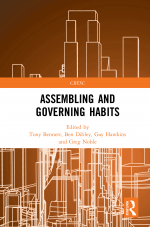The Diversity of Solidarity Economies: A View from Danish Minority Gangs
The term “solidarity economy” is most commonly deployed to describe altruistic and socially beneficial ways of doingbusiness, often in opposition to ones that are less so. Drawing on a year and a half of ethnographic fieldwork among Danish minority gangs, this article seeks to open the discussion on solidarity economies beyond these traditional understandings by addingthe perspective of gangs. It explores the more exclusive and violent aspects of solidarity economies, drawing on the analytical lenses of reciprocity and pooling.



